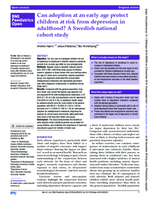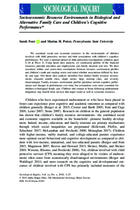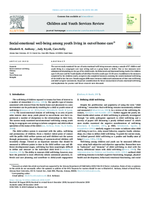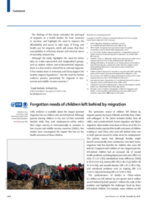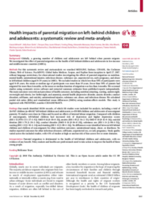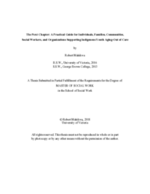Can adoption at an early age protect children at risk from depression in adulthood? A Swedish national cohort study
The aim of this study was to investigate whether the risk of depression in adulthood in children raised by substitute parents from an early age differ by care arrangements.

